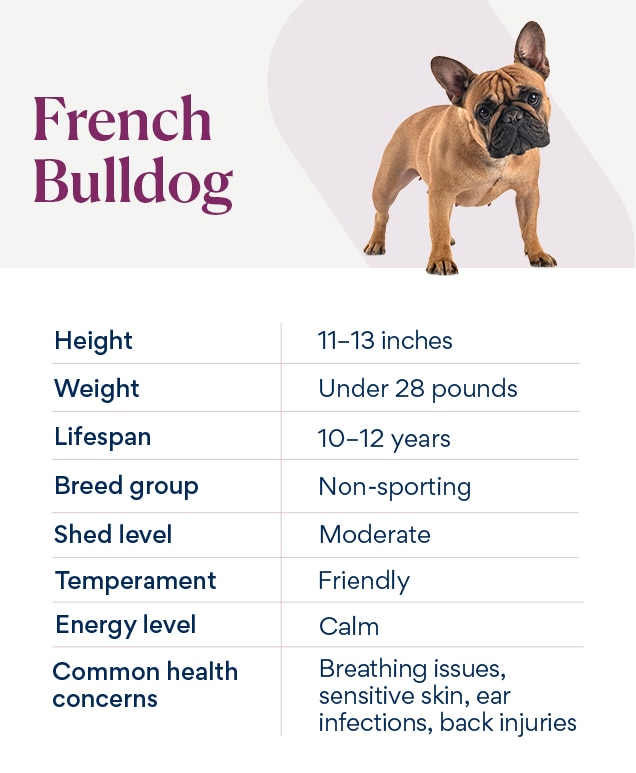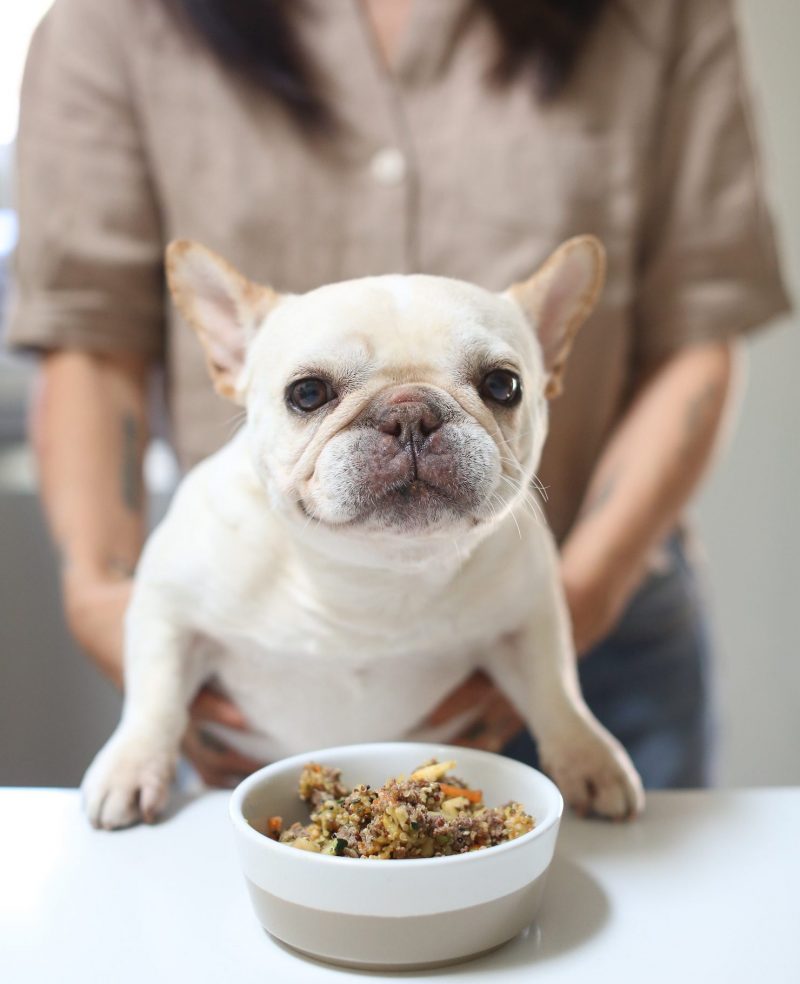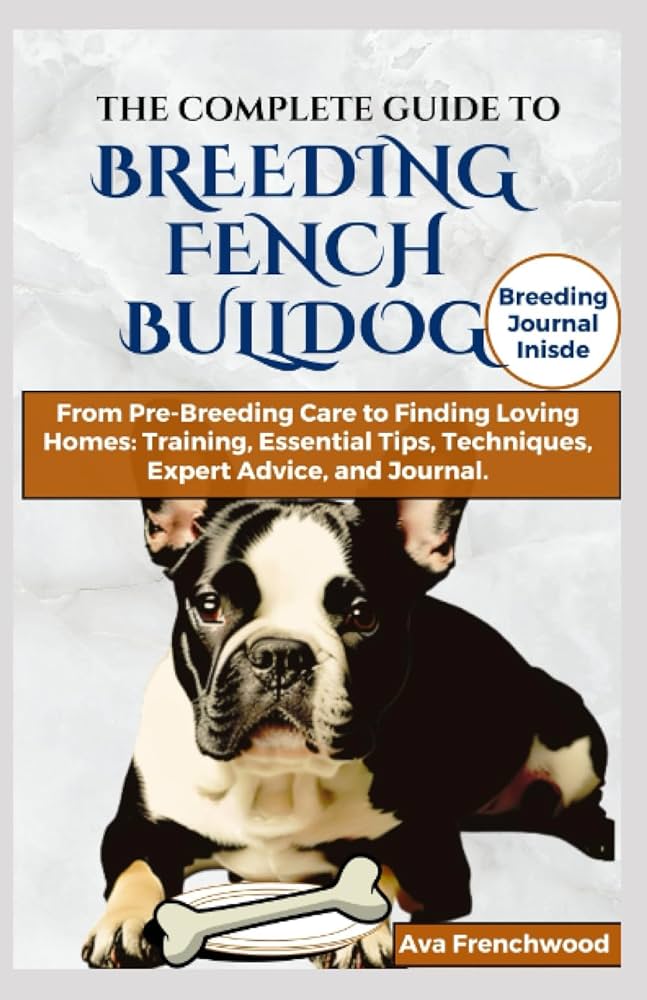Contents
- 1 Symptoms Of Food Allergies In French Bulldogs
- 2 Common Food Allergens For French
- 3 Bulldogs
- 4 Choosing The Right Diet For Your French
- 5 Bulldog
- 6 Homemade Vs. Commercial Allergy
- 7 Diets
- 8 Tips For Managing Food Allergies In
- 9 French Bulldogs
- 10 Frequently Asked Questions On French
- 11 Bulldog Food Allergy
- 12 Conclusion
French Bulldog Food Allergy may develop, commonly triggered by proteins in their diet. Symptoms include itching and gastrointestinal issues.
Understanding and managing these allergies is crucial for your pet’s health. Allergies can cause discomfort and potentially serious health problems for French Bulldogs. Identifying and eliminating the allergen from their diet is essential. Consult your veterinarian to create a suitable dietary plan to alleviate your French Bulldog’s food allergy symptoms.
By providing the right nutrition, you can help your furry friend live a healthy and happy life free from food allergy issues.
Symptoms Of Food Allergies In French Bulldogs
French Bulldogs with food allergies may exhibit symptoms such as itching, redness, and skin irritation, digestive issues like vomiting and diarrhea, and respiratory problems like coughing and sneezing. It is crucial to identify and eliminate the allergen from their diet to alleviate these symptoms and improve their overall well-being.
| Symptoms of Food Allergies in French Bulldogs |
| – Skin issues: Itchy red skin, hair loss. |
| – Gastrointestinal problems: Vomiting, diarrhea, gas. |
Common Food Allergens For French
Bulldogs
One of the common food allergens for French Bulldogs include grains, such as wheat and corn, which can trigger allergic reactions. Additionally, dairy products and certain proteins like chicken may also cause food allergies in French Bulldogs. It is crucial to carefully monitor their diet to identify and eliminate allergens.
| Grains | Beef and Dairy Products |
| Common grains like wheat and corn can trigger allergies in French Bulldogs. | Beef and dairy products, such as milk and cheese, are potential allergens for French Bulldogs. |
Choosing The Right Diet For Your French
Bulldog
Choosing the Right Diet for Your French Bulldog
Limited Ingredient Diet: A limited ingredient diet can be beneficial for French Bulldogs with food allergies as it minimizes the risk of triggering allergic reactions. Look for dog food with a short ingredient list, avoiding common allergens such as grains, dairy, and artificial additives.
Novel Protein Sources: Opt for dog foods that contain novel protein sources such as duck, venison, or salmon. These unique protein sources are less likely to have been encountered by your French Bulldog’s immune system, reducing the likelihood of triggering an allergic response.
Homemade Vs. Commercial Allergy
Diets
When it comes to French bulldog allergies, choosing the right diet is crucial for their well-being. Homemade diets are often preferred by pet owners as they allow for more control over the ingredients. These diets can be tailored to meet specific allergies and sensitivities.
However, there are pros and cons to consider. Homemade diets require more time and effort for preparation and may lack certain essential nutrients. On the other hand, commercial allergy diets are readily available and formulated to address specific allergies. They are convenient and ensure balanced nutrition.
However, they may contain artificial additives or allergens that may not suit all dogs. Consulting with a veterinarian is essential to determine the best approach for managing your french bulldog’s food allergies.
Pros And Cons Of Homemade Diets
Pros:
- Allows for complete control over ingredients
- Can be tailored to meet specific allergies
- Offers the satisfaction of preparing food from scratch
Cons:
- Requires more time and effort for preparation
- May lack certain essential nutrients if not balanced properly
- Can be expensive depending on ingredient selection
Benefits Of Commercial Allergy Diets
Commercial allergy diets have their own advantages:
- Readily available and convenient to use
- Formulated to address specific allergies
- Ensure balanced nutrition for your dog
However, it’s important to note that commercial diets may contain artificial additives and potential allergens that may not suit all dogs. Discussing the right diet options with your veterinarian is crucial to ensure the health and well-being of your french bulldog.
Tips For Managing Food Allergies In
French Bulldogs
Food allergies can be a common issue in French Bulldogs, but with the right approach, you can help manage and alleviate your furry friend’s discomfort. Allergen testing plays a vital role in identifying specific triggers, allowing you to make informed decisions about your dog’s diet. Gradual diet changes are also important when introducing new foods, ensuring that any adverse reactions can be easily identified and addressed.
By slowly introducing new ingredients and monitoring your French Bulldog’s response, you can pinpoint potential allergens and avoid them in the future. It’s essential to pay attention to the ingredients of the food you’re feeding your dog, avoiding common allergens such as grains, dairy, and artificial additives. Consulting with a veterinarian and considering hypoallergenic diets may also be beneficial in managing your French Bulldog’s food allergy effectively.

Credit: www.burgesspetcare.com

Credit: www.petmd.com
Frequently Asked Questions On French
Bulldog Food Allergy
Why Do French Bulldogs Commonly Suffer From Food Allergies?
French Bulldogs commonly suffer from food allergies due to their sensitive digestive systems. Certain ingredients commonly found in dog foods, such as grains, beef, and chicken, can trigger allergic reactions in French Bulldogs. It is important to identify and avoid these allergens to keep your Frenchie healthy and allergy-free.
What Are The Common Symptoms Of French Bulldog Food Allergy?
Common symptoms of food allergies in French Bulldogs include itching, skin rashes, diarrhea, vomiting, and ear infections. These symptoms can be mild or severe, depending on the individual dog and the specific allergen. If you notice any of these symptoms, it is important to consult with your vet for proper diagnosis and treatment.
How Can I Determine If My French Bulldog Has A Food Allergy?
To determine if your French Bulldog has a food allergy, you can perform an elimination diet. Start by feeding your Frenchie a novel protein and carbohydrate source that they have never had before, such as venison and sweet potatoes. Monitor their symptoms and gradually introduce other foods to identify potential allergens.
If the symptoms improve on the elimination diet and reappear with certain foods, it indicates a food allergy.
Can Food Allergies In French Bulldogs Be Cured?
Food allergies in French Bulldogs cannot be completely cured, but they can be managed effectively. Once the specific allergens have been identified, you can avoid those ingredients in your Frenchie’s diet. This will help prevent allergic reactions and keep your Frenchie healthy.
Regular monitoring and consulting with your vet are essential to provide proper care for your Frenchie with food allergies.
Conclusion
In sum, understanding food allergies in French Bulldogs is crucial for their health. Selecting the right diet and monitoring for allergic reactions is key. Consulting with a veterinarian for guidance can help in creating a customized meal plan. Remember, a well-balanced, hypoallergenic diet can lead to a happier, healthier pup.


